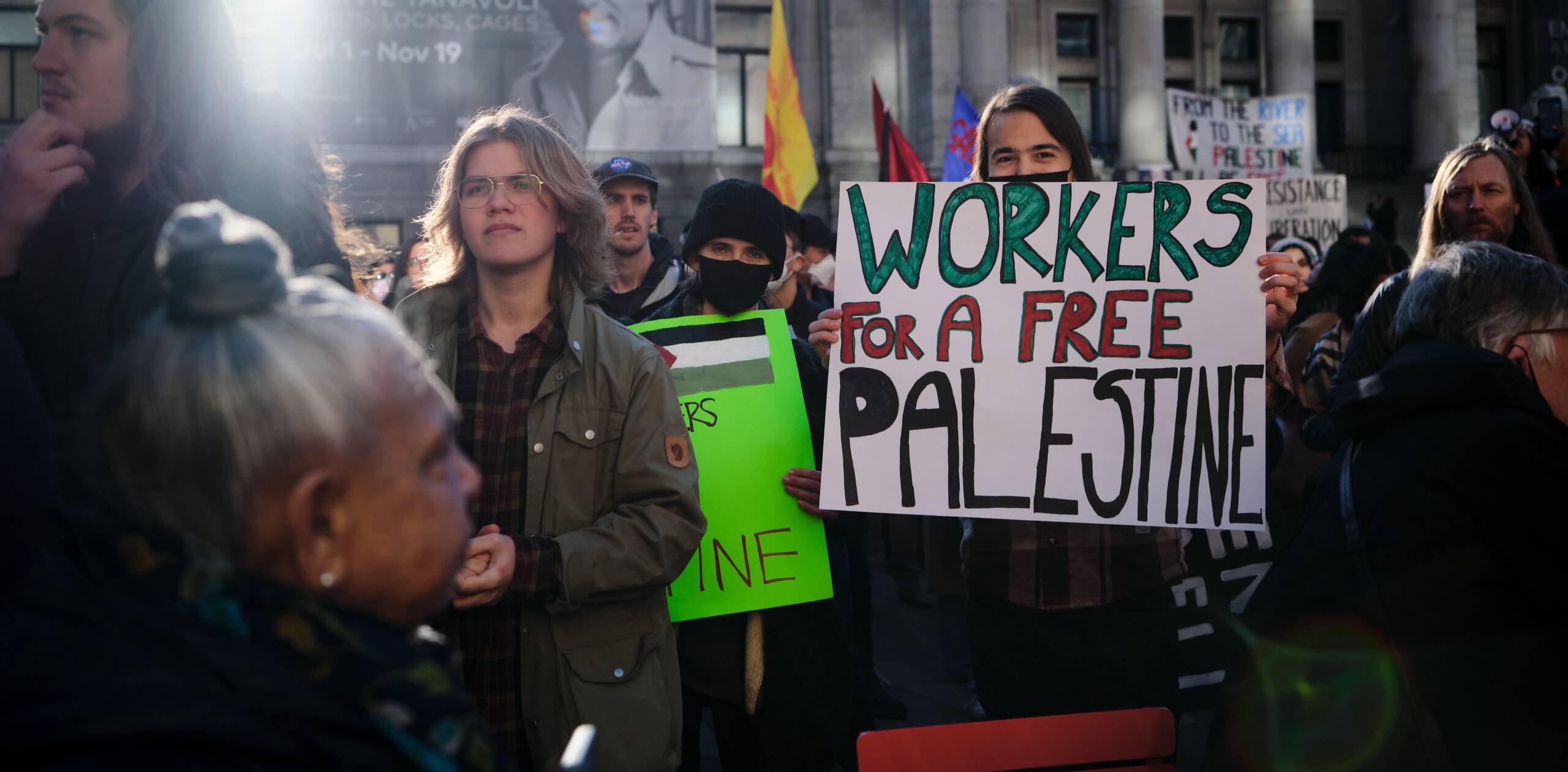Even before the current upsurge in Palestinian resistance and Israeli reprisal, there were more than 5000 Palestinians being held in Israeli jails, including 170 children and 33 women prisoners, according to Addameer Prisoner Support and Human Rights Association.
Since October 7, the number of Palestinian prisoners has doubled. According to an Addameer report from October 24, at least 1266 Palestinians have been detained in the West Bank, including 14 journalists, 13 members of the Palestinian Legislative Council and 18 children. In Gaza, Addameer estimates that 4,000 Palestinians are being held at an Israeli military base under Israel‘s ‘unlawful combatants law’, which Israeli lawmakers have been amending on the fly to make arrests easier and periods of detainment longer.
While the mainstream media uses the terminology of ‘kidnapping’, ‘hostages’ and ‘human shields’ to refer to the Israeli prisoners taken by the Palestinian resistance on October 7, Palestinian prisoners are rarely ever referred to in this way, despite the fact that over 1200 of them (before the current round ups) are imprisoned on ‘Administrative Detention’ certificates. According to Israeli human rights organization B’tselem “Israel routinely uses administrative detention and has, over the years, placed thousands of Palestinians behind bars for periods ranging from several months to several years, without charging them, without telling them what they are accused of, and without disclosing the alleged evidence to them or to their lawyers.”
Thousands more Palestinians are imprisoned purely on the basis of being a member of a Palestinian organization that has been criminalized by the Israeli State. In 2021, Israel designated six civil society groups – Defense for Children International – Palestine, Addameer Prisoner Support and Human Rights Association, the Union of Palestinian Women’s Committees, Union of Agricultural Work Committees, Bisan Centre for Research and Development and Al-Haq human rights group – as ‘terrorist organizations’ for their alleged links to a leftist Palestinian political party, prompting Human Rights Watch and Amnesty International to respond in a joint statement:
“This appalling and unjust decision is an attack by the Israeli government on the international human rights movement. For decades, Israeli authorities have systematically sought to muzzle human rights monitoring and punish those who criticize its repressive rule over Palestinians. While staff members of our organizations have faced deportation and travel bans, Palestinian human rights defenders have always borne the brunt of the repression. This decision is an alarming escalation that threatens to shut down the work of Palestine’s most prominent civil society organizations. The decades-long failure of the international community to challenge grave Israeli human rights abuses and impose meaningful consequences for them has emboldened Israeli authorities to act in this brazen manner.”

The offensive of the Palestinian resistance on October 7, and the subsequent panicked reaction of the Israeli Occupation Forces, left 1,400 dead, with some 250 Israelis taken prisoner by the Palestinian resistance. Israel’s subsequent attack on Gaza has killed more than 8,000, including 3450 children, according to UNICEF.
In an October 28 speech at a rally in support of Palestine at the Vancouver Art Gallery, Charlotte Kates, international coordinator of the Samidoun Palestinian Prisoner Support Network, explained the relevance of prisoners to the offensive of October 7:
“When we hear these narratives that attempt to portray the Zionist occupation regime as the victim of Palestinian resistance, […] the occupation has made it clear, that the only way the Palestinian prisoners will be released is through an exchange led by the Palestinian resistance. And so the Palestinian people and their resistance are sacrificing bravely in order to secure the liberation of every Palestinian political prisoner, and every inch of Palestine, from the river to the sea.”
In 2011, Israeli soldier Gilad Shalit, who had been captured by the Palestinian resistance in 2006, was exchanged for the release of 1,027 Palestinian prisoners, the latest example of a long history of prisoner exchanges dating back to the 1950s.
Yahya Al-Sinwar, the political leader of Hamas in Gaza, in his first statement since October 7, said that the Palestinian resistance group is “ready to conduct an immediate prisoners exchange deal” with Israel, and there is evidence that this has been the intention of the October 7 offensive from the start. As Yasmin Porat, a survivor of the attacks from Kibbutz Be’eri, told Israeli public radio, “Their objective was to kidnap us to Gaza. Not to murder us.”
There is growing pressure within Israel, including but not limited to the families of those captured on October 7, to negotiate a prisoner exchange.
Photos : Michael YC Tseng

Be part of the conversation!
Only subscribers can comment. Subscribe to The North Star to join the conversation under our articles with our journalists and fellow community members. If you’re already subscribed, log in.